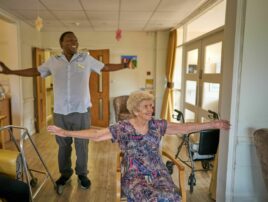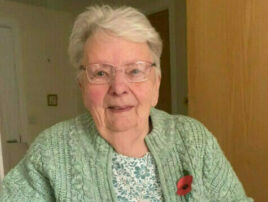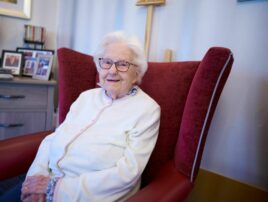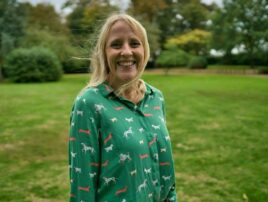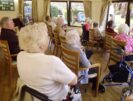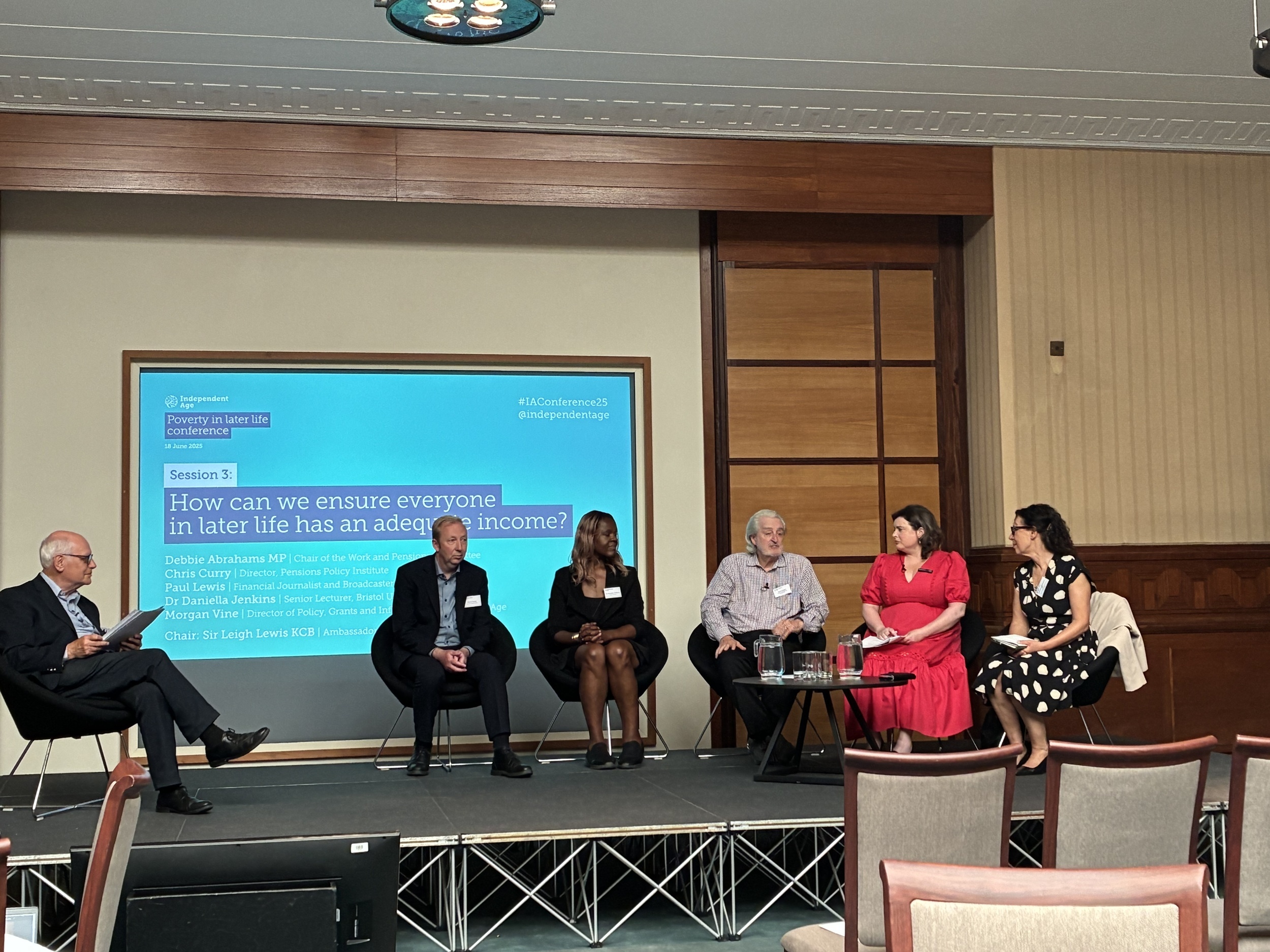
Friday 20th June 2025
How can we alleviate poverty in later life?
Helen Nathan
Hosted by financial hardship charity Independent Age, the Poverty in Later Life conference took place on 18th June and explored the challenges and pressures older people may face
The event took place at the Senate House Building, part of University College London, and was attended by organisations working to support older people, including Pilgrims’ Friend Society.
Richard Anderson, Chair of Trustees for Independent Age, opened proceedings by highlighting the estimated two million older people in the UK who are living in poverty, with a further one million older people thought to be hovering above the poverty line. Private renters, women, single people, those living with a disability, those from ethnic minorities and those with caring responsibilities were identified as groups that may be more vulnerable to poverty in later life, with people often belonging to more than one group.
There was then the Lived Experience Panel, hosted by former BBC World Service broadcaster Bola Mosuro, where we heard from those directly affected by poverty and low income in later life, and those who seek to support them.
Yvonne, soon to turn 80 and struggling with mobility, shared how, even with the Winter Fuel Payment allowance, she is often cold during the winter, only turning the heating on for an hour in the morning and an hour in the evening and going back to bed during the day to huddle under blankets.
Yvonne said, “I don’t want to spend the rest of my life in bed. I want to be out there mixing with other people... It doesn’t do my mental health any good. I used to be a receptionist and met hundreds of people. When that’s gone you’re just left with your thoughts and that’s not a good place to be.”

Khudeja Amer-Sharif, Chief Executive of Shama Women’s Centre in Leicester, spoke of how her organisation supports people from ethnic minorities who struggle with language, digital exclusion and a poor understanding of the benefits system. She shared of an older couple who had both worked in the textile industry seven days a week for £3/hour and never received a payslip. They were living in damp and rotten accommodation that was not fit for habitation. With the support of Independent Age they were able to find more suitable accommodation.
We also heard from Jo Harrington, an adviser on the Independent Age helpline who receives numerous calls from older people in financial crisis. She shared how older people struggle with benefits systems that are complicated and confusing to navigate. For example, those who receive a state pension do not qualify for a carer’s allowance. They could, however, qualify for another benefit – the carer’s premium – but this is often not made clear. She also spoke of how housing allowance doesn’t cover the full cost for private renters (unlike for those who rent from the council) leaving older people vulnerable to eviction. As an example, she shared of a 73-year-old known to the charity who is about to be made street homeless, drawing attention to the fact being of state pension age is not sufficient to qualify a person for protection.
In the second session, Andy Harrop, Director of Public First, presented the findings of a report commissioned by Independent Age ‘Together against poverty in later life – the state of public opinion’. Key results show that there is concern for older people among the general population:
- 79% of people say that older people living in poverty is a “significant” or “somewhat” of an issue in the UK
- 82% agree they deserve more support from the government than they receive, and said they would be willing to pay more tax and would vote based on this issue
- More than 3 in 4 think the UK government has a role to pay in addressing poverty for older people, including in maintaining standard of living.
It was encouraging to hear that attitudes towards older people and their needs appear to be shifting, with greater recognition that many are struggling.
We then split into smaller groups for a table top activity exploring the kinds of scenarios people on low incomes can easily find themselves in. My group looked at the circumstances of a 69-year-old male divorcee whose only income is the new state pension of £990 a month, putting him just over the threshold of the benefit pension credit. He is paying a mortgage as well as the usual household bills for energy, water etc. Money is tight but he can manage. However, a change in circumstances like a bills hike can have a serious impact.

In the afternoon session, Sir Leigh Lewis, previously Permanent Secretary at the Department for Work and Pensions, hosted a discussion exploring ways to ensure everyone in later life has an adequate income to live well. On the panel were Debbie Abrahams, MP and Chair of the Work and Pensions Committee, Paul Lewis, financial journalist and broadcaster, Chris Curry, Director of the Pensions Policy Institute, Dr Daniella Jenkins, Senior Lecturer at Bristol University and Morgan Vine, Director of Policy, Grants and Influencing at Independent Age. The panel discussed ways to help people access the benefits to which they are entitled, including the possibility of auto-enrolment and the simplification of the benefits system. The possibility of equity release as a way for homeowners to cover the cost of social care was also raised.
As part of the day, delegates were also invited to make a pledge of how they would help to raise the profile of financial hardship in later life. As Communications and PR Manager for Pilgrims’ Friend Society, I felt that pledging to share the stories of pensioners living in poverty was fitting.
As well as exploring the bigger, top level policy decisions that could be made, for me the day was also a reminder of the power individuals have to help older people who are struggling. In a Christian context, reaching out to older and vulnerable people in our church congregations is an important way we can help mitigate isolation and loneliness and even help older people to navigate the systems in place to ensure they receive any financial support they are entitled to. A good place to start could be with a call to the Independent Age helpline, where advisers can provide a benefits check. The number to call is 0800 319 6789.

More on tackling big issues in later life...

Five ways to help ease summer loneliness
Alex Huggins from Faith in Later Life shares five practical and compassionate ways to help ease loneliness during the summer months

Spotlight on: Immanuel Church, Bournemouth
Immanuel Church in Southbourne, Bournemouth is empowering older people through a vibrant ministry run by devoted senior volunteers from the United Reformed Church

Better social care means better stewardship, says Sir Andrew Dilnot
The economist argues that a properly funded social care system would enable us to live out our God-given mandate to be good stewards

